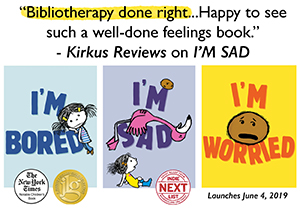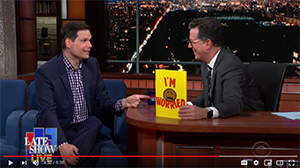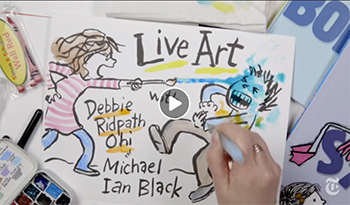Monday
Apr092007
What is the filk community?
Posted on  Monday, April 9, 2007 at 6:31PM
Monday, April 9, 2007 at 6:31PM
 Monday, April 9, 2007 at 6:31PM
Monday, April 9, 2007 at 6:31PM
I posted a question to rec.music.filk some years back, asking what the filk community meant to them. Here are just a few answers; if you'd like to add yours, please scroll to the bottom of this page and post a comment.
Dave Alway:
"(A Talkin' Blues to TTTO "Alice's Restaurant")
I was going to write- I was going to write a lengthy thesis (with footnotes and detailed quotations, and 8x10 colored glossy photos with circles and arrows and a paragraph on the back of each one telling what each one was) on why I like filking. But then I realized that Debbie- Debbie Ohi- was right: it all boils down to the camaraderie. So I didn't.
Instead- well, instead we was having a chat on filkhaven, and during that chat I heard Rob Wynne define 'filk' as 'the folk music of Science Fiction fandom.' I thought about that and the more I thought about that I realized it was fine. I mean, it was a very fine definition. That definition is a functional one, and- as I am an old coot- I mean I am old for my age, and that is old- it reminded me of another. Another definition I mean. I remember the folk-revival of the 1960s and its songs. And how those songs were associated with the activism of the 1960s. And before that the songs of the 1930s. And how those old old songs that were associated with the antifascist movements of the late 1920s and 1930s. And how the anti-fascist movement folks said that the fascists had all those armies and modern weapons of war, but the movement folks had the good songs.
It got me to think. It really did get me to think. I mean- here are all these songs. All these songs people have thought up over the years. I mean not just years! But decades! Centuries! Years of decades! Centuries of years! Years of centuries! And new ones all the time. And one weekend, on a park bench, I tried to see if some songs were filk songs and some were not. And I can't sort them out. No way! I tried to say- well, this one's a filk song, but that one isn't. And maybe yes, and maybe no. I was going crazy on the park bench in the park trying to see if some song- say a song like Alice's Restaurant- was a filk song or not.
So I gave up. And then I came to the realization, that maybe- just maybe- Rob might be right. So now I don't worry- too much about whether a song is a filk song or not. But then if filk isn't about songs, what is it about? And then I thought about all the other songs and what they were about. And then, then, I came to the realization that since the other songs were all about camaraderie and people- the dreamers and the rebels and all the people who nobody can really classify or even should ought to classify. Well, then, just maybe, so was filk about people and friends and why, why it was all about- camaraderie! And then I had an idea- an inspiration. So, someday, when you are at a science fiction convention, or maybe, if you are really daring- maybe just about anyplace with a park bench or a couch or a bed and you are sitting on it- well-
Wouldn't be great- I mean- wouldn't it be just fine- if one person- just ONE PERSON- stood up and said 'Camaraderie!' and sat down. They would think she was nuts. But if two people. Yes, TWO PEOPLE, stood up and said, together, duet-wise, with glissandoes, 'Camaraderie!' they might think that something was going on. And if three -- yes, THREE PEOPLE- all at once- sang, sang in three part harmony CAMARADERIE!' -- well, they just might think it was a ... a Movement!
And yes ma'am, I think that's what it just might be. The Science Fiction and Fantasy Filking Movement. Just think about that.
So we'll wait a bit- until after 10pm on this Saturday night- and set set a spell until it comes around again on this fine chronometer-10pm on this night- and then we'll sing, in complete and full camaraderie- until the morning dawn breaks.
So will you wait? And we'll sing it- sing filk- with feelin - !"
Jeff Bohnhoff:
"I see the filk community as a safe place for anyone to express themselves musically. Although as with any social group there are some lapses of manners and attempts to use the community for egotistical ends - for the most part people really are there to listen to each other, and embrace the diversity of styles, viewpoints and skill levels that all the different participants bring to a given circle. This is pretty uncommon in the general music making community where musicians tend to be very competitive and even cut-throat in their relationships with one another. In the filk community, most of the well known 'big names' are very nurturing of new faces. When Maya and I were first getting started, we invariably found the well known filkers, whether it be Kathy Mar, or Dr Jane and Cindy McQuillan, or Leslie Fish to be open and supportive, rather than defensive of their 'status', as we would have expected in many other musical situations. For me, the welcoming atmosphere was a breath of fresh air after having played for years in musical communities where there was a lot of back-stabbing and unhealthy competitiveness. After over 8 years, that feeling hasn't changed for me. I still see new people being welcomed and nurtured by the community, and that warms my heart."
Lynn Gold:
"I liken it to the black American gospel music tradition.
If you ever go to a gospel service with choir, etc., you'll always see some folks doing solos. Some of them are better than others, but the room reacts with massive enthusiasm no matter how good or bad the soloist is.
Years ago I sang with a gospel choir because I wanted to know what that experience was all about. We were performing at a church when a little girl got up and did an awkward, mediocre quality solo. As she was performing, the "star" performer in our choir was remarking to one of the other gals in the group that this little girl's performance reminded her of her OWN first solo performance. I noticed that after the girl got done the room applauded wildly.
This is the same music tradition from which many black pop stars have come. Instead of being told to not sing if they're less than perfect, they're encouraged and nurtured.
When I first experienced the filk community I saw the same thing. No matter how awful your one-shot was (and my first one was truly frightening), people applauded. In a filk circle folks always applaud no matter how many keys your song (unintentionally) winds up being in. This kind of nurturing and encouragement has helped folks like me develop self-confidence I never would have had otherwise."
Perry:
"To me, it means a chance to push my creative skills to their logical, but absurd extent in front of (both virtually and physically) people who will understand (most of) where I'm coming from, and generally get the messages or emotions that I'm trying to express.
Musically, I still agree with Myra Stewart's assessment that filk is music performed by a filker in a filk circle...ANY music (as Sherman and the other Central Florida filkers will confirm, I do push the envelope on that)."
Tim Ryan:
"I feel that filk is as much being heard by the community as it is performing in it and the listen-only audience.
I feel there is a real loss to the community, when after a performer is rewarded with their own concert at a con, that they seem to ignore those not as fortunate, by not being around listen in the circle the night before or afterward.
When I first seen filk as all-circle / only circle, it was the only venue to be heard. A concert is a reward, not a replacement for the interactive experience. This interaction in our community is so much higher that what I seen when I would go attend the folk club open mike performances. There, a bunch of performers would be there, but not interacting as much with others as much as I see in filking. Their loss."
Alex Wittenberg:
"The filk community is a family to me. (I'd call if my fourth, after my birth family, my marriage family, and my family of local friends). OK, sometimes it's a dysfunctional family, but when I go to cons, the filk room is home. The cons I look forward to the most are the filk cons, which feel more and more like reunions. We sing, we laugh, we vent, we cry, we rage, we sing again.
My first con was a filk con (Contata '98, where UT was among the guests and sang about Marc Osier). The flock of strangers made me feel at home. They kept making me feel at home in Atlanta and Virginia and Ohio. They reached out on 9/11 to make sure we in NYC were okay, and they embraced up close and from a distance last weekend at the news of an engagement and of an unlikely pregnancy.
In short, the filk community is family, to those who need a break from their real families, to those who love lots of zany cousins, and to those who don't have family of the genetic sort.
Hope that wasn't too sappy."
Comments? Please post below.
Dave Alway:
"(A Talkin' Blues to TTTO "Alice's Restaurant")
I was going to write- I was going to write a lengthy thesis (with footnotes and detailed quotations, and 8x10 colored glossy photos with circles and arrows and a paragraph on the back of each one telling what each one was) on why I like filking. But then I realized that Debbie- Debbie Ohi- was right: it all boils down to the camaraderie. So I didn't.
Instead- well, instead we was having a chat on filkhaven, and during that chat I heard Rob Wynne define 'filk' as 'the folk music of Science Fiction fandom.' I thought about that and the more I thought about that I realized it was fine. I mean, it was a very fine definition. That definition is a functional one, and- as I am an old coot- I mean I am old for my age, and that is old- it reminded me of another. Another definition I mean. I remember the folk-revival of the 1960s and its songs. And how those songs were associated with the activism of the 1960s. And before that the songs of the 1930s. And how those old old songs that were associated with the antifascist movements of the late 1920s and 1930s. And how the anti-fascist movement folks said that the fascists had all those armies and modern weapons of war, but the movement folks had the good songs.
It got me to think. It really did get me to think. I mean- here are all these songs. All these songs people have thought up over the years. I mean not just years! But decades! Centuries! Years of decades! Centuries of years! Years of centuries! And new ones all the time. And one weekend, on a park bench, I tried to see if some songs were filk songs and some were not. And I can't sort them out. No way! I tried to say- well, this one's a filk song, but that one isn't. And maybe yes, and maybe no. I was going crazy on the park bench in the park trying to see if some song- say a song like Alice's Restaurant- was a filk song or not.
So I gave up. And then I came to the realization, that maybe- just maybe- Rob might be right. So now I don't worry- too much about whether a song is a filk song or not. But then if filk isn't about songs, what is it about? And then I thought about all the other songs and what they were about. And then, then, I came to the realization that since the other songs were all about camaraderie and people- the dreamers and the rebels and all the people who nobody can really classify or even should ought to classify. Well, then, just maybe, so was filk about people and friends and why, why it was all about- camaraderie! And then I had an idea- an inspiration. So, someday, when you are at a science fiction convention, or maybe, if you are really daring- maybe just about anyplace with a park bench or a couch or a bed and you are sitting on it- well-
Wouldn't be great- I mean- wouldn't it be just fine- if one person- just ONE PERSON- stood up and said 'Camaraderie!' and sat down. They would think she was nuts. But if two people. Yes, TWO PEOPLE, stood up and said, together, duet-wise, with glissandoes, 'Camaraderie!' they might think that something was going on. And if three -- yes, THREE PEOPLE- all at once- sang, sang in three part harmony CAMARADERIE!' -- well, they just might think it was a ... a Movement!
And yes ma'am, I think that's what it just might be. The Science Fiction and Fantasy Filking Movement. Just think about that.
So we'll wait a bit- until after 10pm on this Saturday night- and set set a spell until it comes around again on this fine chronometer-10pm on this night- and then we'll sing, in complete and full camaraderie- until the morning dawn breaks.
So will you wait? And we'll sing it- sing filk- with feelin - !"
Jeff Bohnhoff:
"I see the filk community as a safe place for anyone to express themselves musically. Although as with any social group there are some lapses of manners and attempts to use the community for egotistical ends - for the most part people really are there to listen to each other, and embrace the diversity of styles, viewpoints and skill levels that all the different participants bring to a given circle. This is pretty uncommon in the general music making community where musicians tend to be very competitive and even cut-throat in their relationships with one another. In the filk community, most of the well known 'big names' are very nurturing of new faces. When Maya and I were first getting started, we invariably found the well known filkers, whether it be Kathy Mar, or Dr Jane and Cindy McQuillan, or Leslie Fish to be open and supportive, rather than defensive of their 'status', as we would have expected in many other musical situations. For me, the welcoming atmosphere was a breath of fresh air after having played for years in musical communities where there was a lot of back-stabbing and unhealthy competitiveness. After over 8 years, that feeling hasn't changed for me. I still see new people being welcomed and nurtured by the community, and that warms my heart."
Lynn Gold:
"I liken it to the black American gospel music tradition.
If you ever go to a gospel service with choir, etc., you'll always see some folks doing solos. Some of them are better than others, but the room reacts with massive enthusiasm no matter how good or bad the soloist is.
Years ago I sang with a gospel choir because I wanted to know what that experience was all about. We were performing at a church when a little girl got up and did an awkward, mediocre quality solo. As she was performing, the "star" performer in our choir was remarking to one of the other gals in the group that this little girl's performance reminded her of her OWN first solo performance. I noticed that after the girl got done the room applauded wildly.
This is the same music tradition from which many black pop stars have come. Instead of being told to not sing if they're less than perfect, they're encouraged and nurtured.
When I first experienced the filk community I saw the same thing. No matter how awful your one-shot was (and my first one was truly frightening), people applauded. In a filk circle folks always applaud no matter how many keys your song (unintentionally) winds up being in. This kind of nurturing and encouragement has helped folks like me develop self-confidence I never would have had otherwise."
Perry:
"To me, it means a chance to push my creative skills to their logical, but absurd extent in front of (both virtually and physically) people who will understand (most of) where I'm coming from, and generally get the messages or emotions that I'm trying to express.
Musically, I still agree with Myra Stewart's assessment that filk is music performed by a filker in a filk circle...ANY music (as Sherman and the other Central Florida filkers will confirm, I do push the envelope on that)."
Tim Ryan:
"I feel that filk is as much being heard by the community as it is performing in it and the listen-only audience.
I feel there is a real loss to the community, when after a performer is rewarded with their own concert at a con, that they seem to ignore those not as fortunate, by not being around listen in the circle the night before or afterward.
When I first seen filk as all-circle / only circle, it was the only venue to be heard. A concert is a reward, not a replacement for the interactive experience. This interaction in our community is so much higher that what I seen when I would go attend the folk club open mike performances. There, a bunch of performers would be there, but not interacting as much with others as much as I see in filking. Their loss."
Alex Wittenberg:
"The filk community is a family to me. (I'd call if my fourth, after my birth family, my marriage family, and my family of local friends). OK, sometimes it's a dysfunctional family, but when I go to cons, the filk room is home. The cons I look forward to the most are the filk cons, which feel more and more like reunions. We sing, we laugh, we vent, we cry, we rage, we sing again.
My first con was a filk con (Contata '98, where UT was among the guests and sang about Marc Osier). The flock of strangers made me feel at home. They kept making me feel at home in Atlanta and Virginia and Ohio. They reached out on 9/11 to make sure we in NYC were okay, and they embraced up close and from a distance last weekend at the news of an engagement and of an unlikely pregnancy.
In short, the filk community is family, to those who need a break from their real families, to those who love lots of zany cousins, and to those who don't have family of the genetic sort.
Hope that wasn't too sappy."
Comments? Please post below.
in  Community
Community
 Community
Community 








Reader Comments (2)
[...] Related FAQ pages: How did filk get started? What is the filk community? [...]
One of my greatest joys in filk, right up there with finding out that folks like my stuff, is watching people grow as performers. When I was interviewed by the Filk Film Project last year, I said something like this:
The filk community is a place where it's okay to suck. But it's also a place where, if you want it, you can get the practice, and the advice, and the mentoring you need, so you can learn how not to suck.
I stand by that, and love filk because of it. It's one of the greatest win-win situations ever. Shy, nervous people gain confidence as they develop skill. Everybody else gains the pleasure of hearing another good and unique performer. And we all share the joy.
The basis of the community is a common interest, and (at least to some extent) a shared way of looking at the world. But its heart comes from the tradition of support, and the trust and affection that builds as a result.